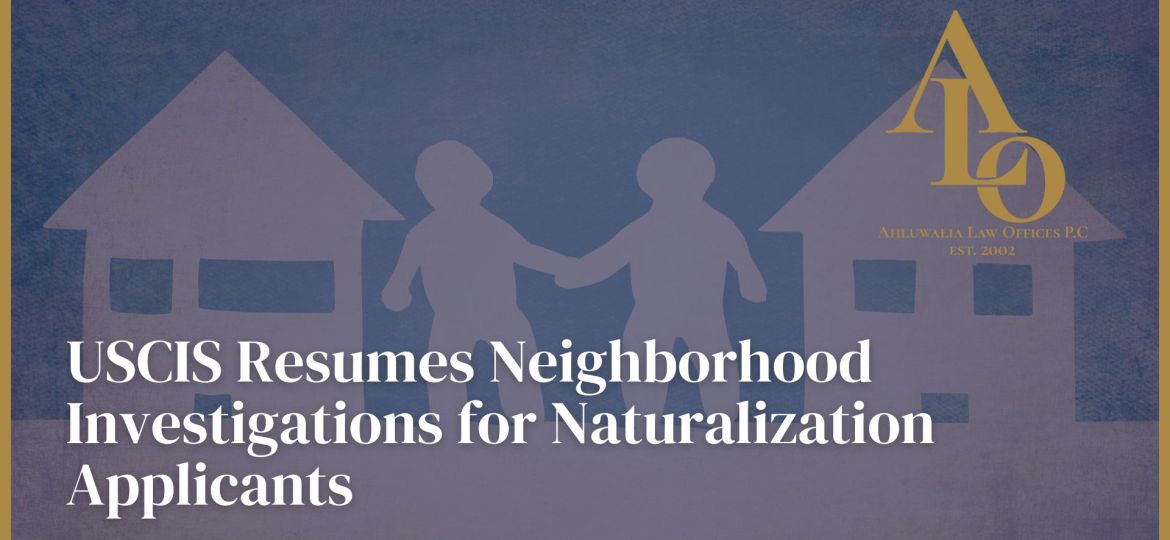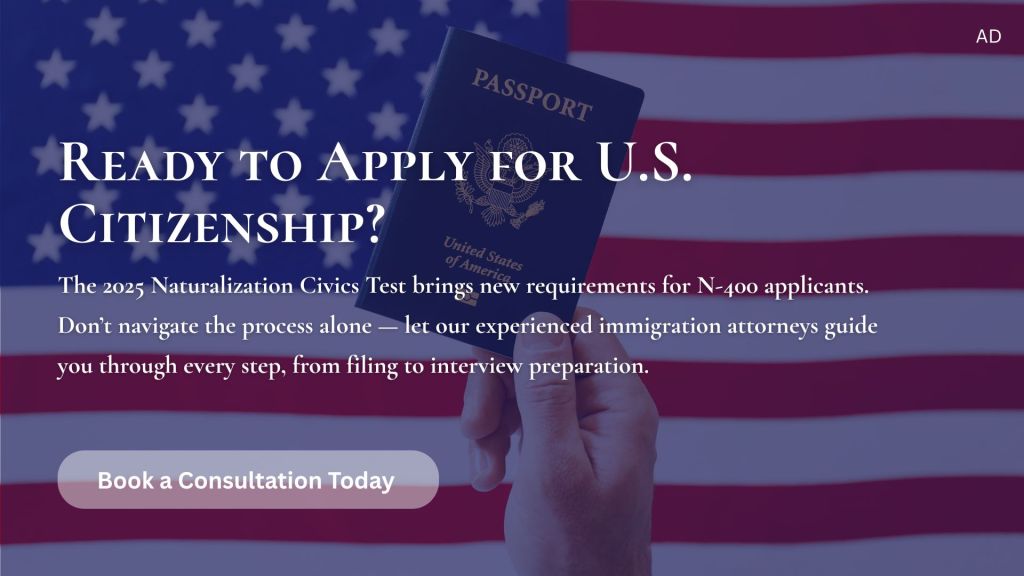
On August 22, 2025, U.S. Citizenship and Immigration Services (USCIS) issued a policy memorandum (PM-602-0189) announcing the resumption of personal or “neighborhood” investigations for naturalization applicants under Section 335(a) of the Immigration and Nationality Act (INA).
What Are Neighborhood Investigations?
Under INA 335(a) and 8 CFR 335, USCIS has the authority to investigate an applicant’s eligibility for citizenship, which includes residency, good moral character, and attachment to the U.S. Constitution. Traditionally, these investigations involved checks in the applicant’s residential and employment areas covering at least the past five years.
While these investigations were largely discontinued in the 1990s, USCIS has now ended its general waiver of this requirement, choosing instead to determine on a case-by-case basis whether an investigation is needed.
What Applicants Should Expect
- Discretionary Review: USCIS will decide individually whether to conduct a neighborhood investigation.
- Requests for Additional Evidence: Applicants may be asked to provide letters from neighbors, employers, or colleagues who can verify their character and conduct.
- Proactive Submissions: Submitting testimonial letters and supporting evidence with the Form N-400, Application for Naturalization, may help reduce the likelihood of additional investigation or delays.
Implications for Naturalization Applicants
The resumption underscores USCIS’s emphasis on ensuring that new citizens are fully committed to the principles of the United States. Applicants should be prepared for increased scrutiny, particularly regarding:
- Continuous residency and presence
- Demonstration of good moral character
- Strong ties to the Constitution and U.S. community values
Failure to provide supporting evidence when requested may result in a full neighborhood investigation, potentially delaying adjudication.
Next Steps
If you are considering applying for naturalization or are currently in the process, it is important to:
- Gather supporting evidence early (letters from employers, community members, and neighbors).
- Maintain clear records of residency and employment.
- Consult with an immigration attorney to prepare a comprehensive filing strategy and avoid unnecessary delays.


